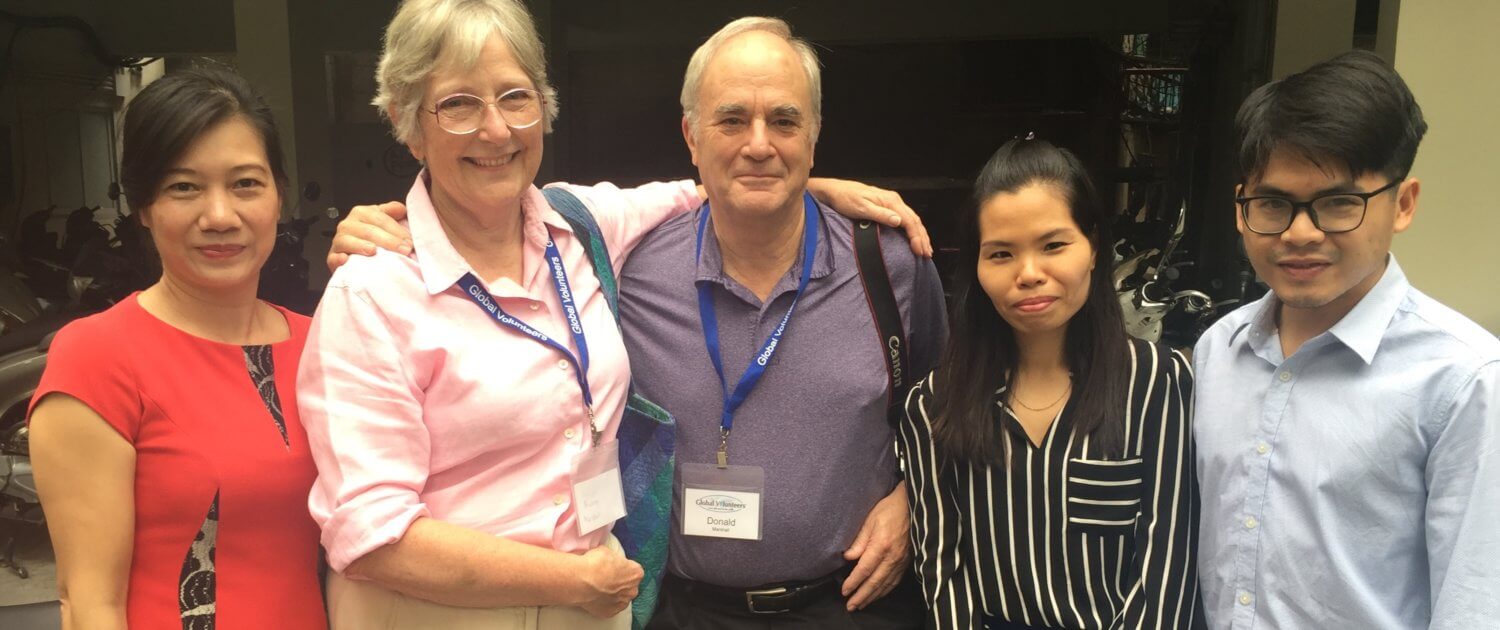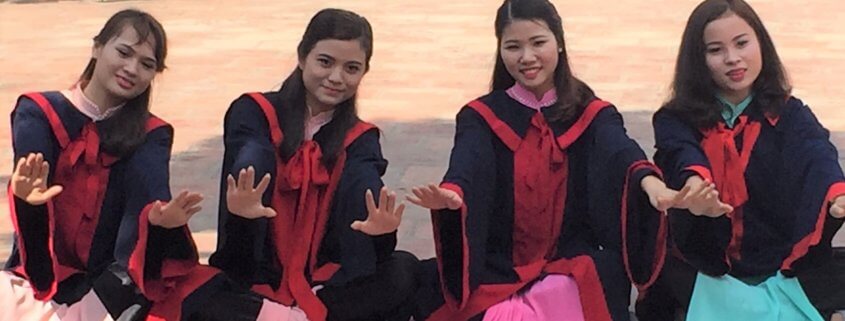Longtime Global Volunteer Recalls Vietnamese Welcome
Sidelined from travel by the 2020-21 pandemic Global Volunteers Alumnus Don Marshall of Sebastopol, CA, isn’t slowing down now that travel has resumed. As he considers his next adventure in service, he recently reminisced about about his rewarding Vietnam service journey, and continues exploring new opportunities to serve the Vietnamese people.
Since 2006, Don and Mickey Marshall had joined at least one Global Volunteers program each year – serving in the Cook Islands (twice), Tanzania (three times), Peru, St. Lucia, Portugal, China, Costa Rica, and Vietnam. Eleven service programs in 11 years together. They were, by any measure, experienced international volunteers. Even following Mickey’s death in 2019, Don served in Peru and Ecuador alone.
But it was the couple’s journey to Vietnam in 2016 that they didn’t feel fully prepared for. Why? “We were concerned with how we would be treated, given our memory of the Vietnam war,” Don explained. The way that war (called the “American War” in Vietnam) is perceived by civilians differs greatly between the two countries. The Vietnam War is still a deeply politically and socially divisive topic for Americans, and many expect the war legacy will follow them into the country even 45 years later.

The Marshalls happily discovered that in Vietnam, the resilient culture allowed healing to advance quickly. “Many Vietnamese people wonder why Americans hold on to the trauma,” said Global Volunteers partner Huong Nguyen of Blind-Link. So, American tourists and volunteers alike are regarded with great appreciation and respect. “Our initial apprehension was quickly resolved once we got there,” Don remarked. “The people at the airport, the hotel, on the street, and our workplace were all very friendly toward us, and identified us immediately as Americans.”
Today, many of the students Global Volunteers team members teach English to have little operating context for the war, as the population’s median age is 31, with 23 percent under age 15. Young adults don’t regard the war as the mile-marker of history that it is in the U.S. “Teaching English with the young professionals of Vietnam Institute for Development Strategies (VIDS) was most enjoyable,” Don continued. Instead of referring to the war, they wanted to discuss each country’s cultural history. “As part of our teaching, they took us out to various interesting places such as the Temple of Literature and the Ho Chi Minh museum where we practiced conversational English as they guided us. For lunch, we went to many restaurants including the place where President Obama ate.” There was never a hint of disdain or resentment from anyone they met, Don said.
But what did seem daunting to them at first, and resolved into a source of high-anxiety humor, was the chaotic Hanoi traffic. “I never made sense out of it,” said Don. “We felt like we were taking our lives in our hands each day crossing the street to VIDs.” He offered a clip shot on his smart phone as proof. “People I show it to can’t believe it,” he laughs.
But, sticking to the crowds of pedestrians, with one of them watching both ways and the other listening intently to the traffic sounds, the couple successfully navigated the streets for two weeks with not even a “near miss.”
Don reports that now, during the global pandemic, the Vietnam Program is one of his favorite Global Volunteers memories. “I’m grateful I was able to serve in Ecuador in January (2020) before COVID-19 hit, and while I’m disappointed my December, 2020 Cuba Program was canceled, I look forward to the time I can return to volunteering abroad in 2021,” he asserted. Now, at age 86, he misses the camaraderie of teammates and the knowledge he’s leaving a legacy in the world. “I can’t think of a better way to travel,” he concluded.
You may also enjoy:




Leave a Reply
Want to join the discussion?Feel free to contribute!